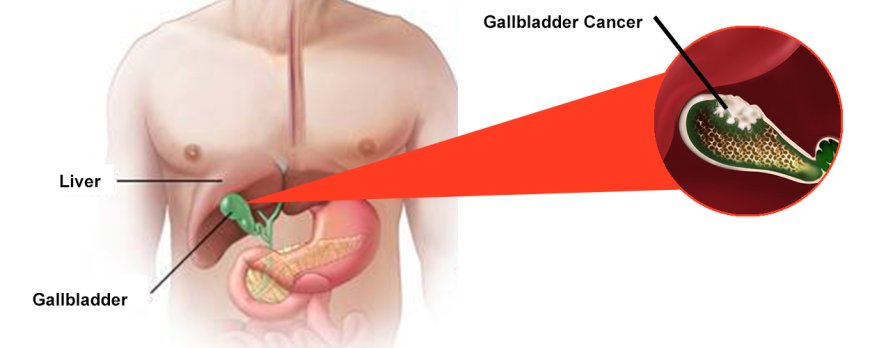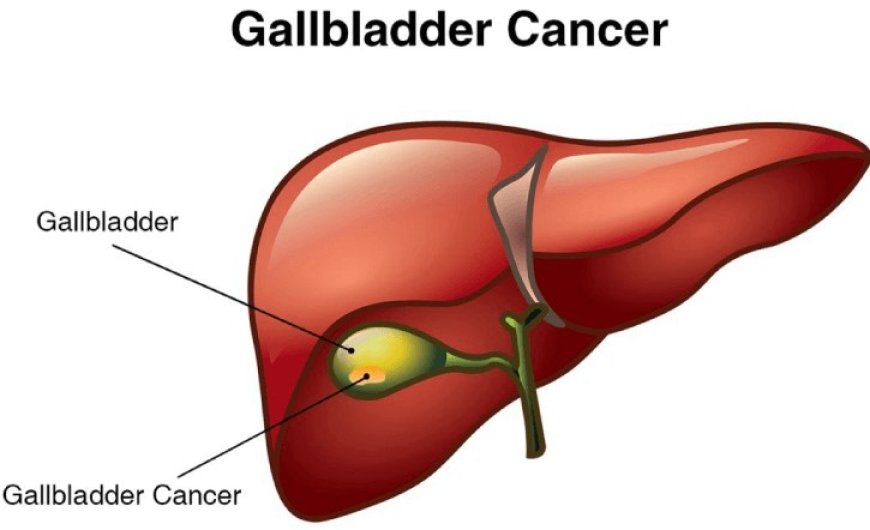"Overcoming Gallbladder Cancer: Strategies for Improving Quality of Life".
Learn effective strategies for improving your quality of life while overcoming gallbladder cancer. Discover practical tips and expert advice in this comprehensive guide.
Gallbladder cancer is a rare type of cancer that affects the gallbladder, a small organ located beneath the liver. It is often difficult to diagnose in its early stages and has a poor prognosis. In this article, we will discuss the causes, symptoms, and treatment options for gallbladder cancer.
Causes of Gallbladder Cancer
While the exact cause of gallbladder cancer is not clear, doctors know that it forms when healthy gallbladder cells undergo changes or mutations in their DNA. These changes instruct the cells to grow uncontrollably and live on when other cells would normally die. Over time, the accumulating cells form a tumor that can spread beyond the gallbladder and into other areas of the body.
Symptoms of Gallbladder Cancer
Gallbladder cancer is often difficult to detect in its early stages because it doesn't usually cause any symptoms. However, as the cancer grows, it can cause the following symptoms:
- Abdominal pain - The pain is usually located in the upper right part of the abdomen.
- Jaundice - The skin and whites of the eyes turn yellow.
- Nausea and vomiting - These symptoms can occur as a result of a blocked bile duct.
- Unexplained weight loss - This can occur as a result of a loss of appetite or the body's inability to absorb nutrients properly.
- Fever - This can occur if the cancer causes an infection.
Diagnosing Gallbladder Cancer
Diagnosing gallbladder cancer can be challenging because the symptoms are often non-specific and can be caused by other conditions. However, if gallbladder cancer is suspected, the following tests may be performed:
- Ultrasound - This test uses sound waves to create images of the gallbladder and surrounding organs.
- CT scan - This test uses X-rays and a computer to create detailed images of the body.
- MRI - This test uses a magnetic field and radio waves to create images of the body.
- Biopsy - A small sample of tissue is removed from the gallbladder and examined under a microscope to look for cancer cells.
Treatment Options for Gallbladder Cancer
The treatment options for gallbladder cancer depend on the stage of the cancer and the patient's overall health. Treatment options may include:
- Surgery - The most common treatment for gallbladder cancer is surgery to remove the gallbladder and any surrounding tissue that may contain cancer cells.
- Chemotherapy - This treatment uses drugs to kill cancer cells.
- Radiation therapy - This treatment uses high-energy radiation to kill cancer cells.
Risk Factors
Gallbladder cancer is a relatively rare form of cancer that affects the gallbladder, a small organ located beneath the liver. While the exact cause of gallbladder cancer is not known, certain factors can increase a person's risk of developing this disease.
- Age - Gallbladder cancer is more common in people over the age of 65.
- Gender - Women are twice as likely to develop gallbladder cancer as men.
- Gallstones - People who have a history of gallstones have an increased risk of developing gallbladder cancer.
- Obesity - Being overweight or obese can increase the risk of developing gallbladder cancer.
- Ethnicity - Gallbladder cancer is more common in certain ethnic groups, including Hispanic populations.
- Primary sclerosing cholangitis (PSC) - This is a rare liver disease that can increase the risk of developing gallbladder cancer.
- Family history - People with a family history of gallbladder cancer are at a higher risk of developing this disease.
It is important to note that having one or more of these risk factors does not necessarily mean that a person will develop gallbladder cancer. However, if you have any concerns about your risk of developing this disease, it is important to speak with your doctor. They can provide you with more information about your individual risk factors and recommend any necessary screenings or tests.
Complications
Gallbladder cancer can lead to a number of complications, especially if it is not detected and treated in its early stages. Some of the potential complications of gallbladder cancer include:
- Obstruction of the bile ducts - As the tumor grows, it can block the bile ducts, which can lead to jaundice (yellowing of the skin and eyes), itching, and abdominal pain.
- Spread to nearby organs - Gallbladder cancer can spread to nearby organs, such as the liver, pancreas, and small intestine, which can lead to further complications.
- Metastasis - In advanced cases of gallbladder cancer, the cancer cells can spread to other parts of the body, such as the lungs or bones, which can lead to further complications.
- Malnutrition - If the tumor blocks the bile ducts, it can interfere with the absorption of nutrients from food, which can lead to malnutrition.
- Blood clots - People with gallbladder cancer are at an increased risk of developing blood clots, which can lead to serious complications, such as pulmonary embolism (a blockage in the lungs) or stroke.
- Pain - As the tumor grows, it can cause pain in the upper abdomen or back.
It is important to note that not everyone with gallbladder cancer will experience these complications, and the severity of these complications can vary depending on the stage and location of the cancer. If you are concerned about the potential complications of gallbladder cancer, it is important to speak with your doctor. They can provide you with more information about your individual risk factors and recommend any necessary screenings or tests.
When to See Doctor
If you have any symptoms or concerns that you may have gallbladder cancer, it is important to see a doctor right away. Some common symptoms of gallbladder cancer include:
- Abdominal pain - particularly in the upper right side of the abdomen
- Jaundice - yellowing of the skin and eyes
- Unexplained weight loss
- Nausea and vomiting
- Fever
- Fatigue
- Loss of appetite
It's important to note that these symptoms can be caused by a variety of conditions and are not necessarily a sign of gallbladder cancer. However, if you experience any of these symptoms, it is important to see a doctor to determine the underlying cause and receive appropriate treatment.
Conclusions
In conclusion, gallbladder cancer is a rare and difficult-to-detect type of cancer. While the exact cause is not clear, certain factors can increase the risk of developing gallbladder cancer. If you experience any symptoms of gallbladder cancer, it is important to speak with your doctor as soon as possible. Early detection and treatment can improve your chances of a successful outcome.
What's Your Reaction?











































